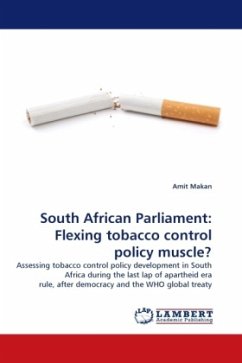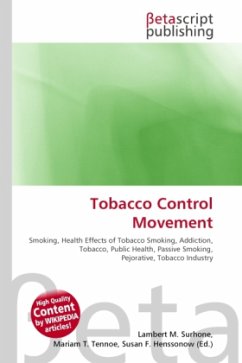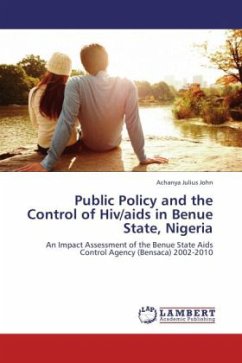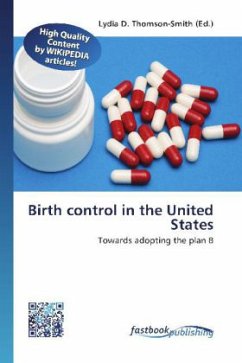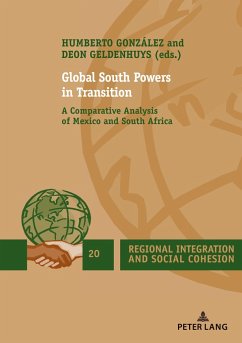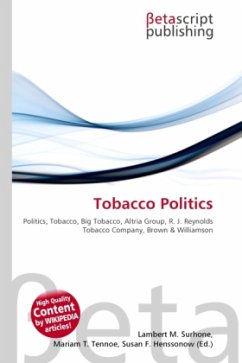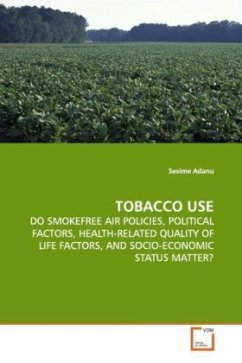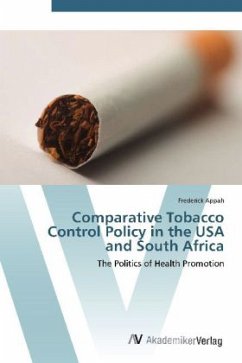
Comparative Tobacco Control Policy in the USA and South Africa
The Politics of Health Promotion
Versandkostenfrei!
Versandfertig in 6-10 Tagen
52,99 €
inkl. MwSt.

PAYBACK Punkte
26 °P sammeln!
Revision with unchanged content. Policy makers, politicians, political scientists, health scientists, researchers, nongovernmental organisations, tobacco control activists and the general public would find this unconventional book on tobacco control interesting and indispensable. This public health policy, international organization and comparative public policy and politics book looks at the impact of health promotion on tobacco control in the United States and South Africa from the Canadian Lalonde report of 1974 to 2004 by challenging some of the seemingly untouchable instruments of tobacco...
Revision with unchanged content. Policy makers, politicians, political scientists, health scientists, researchers, nongovernmental organisations, tobacco control activists and the general public would find this unconventional book on tobacco control interesting and indispensable. This public health policy, international organization and comparative public policy and politics book looks at the impact of health promotion on tobacco control in the United States and South Africa from the Canadian Lalonde report of 1974 to 2004 by challenging some of the seemingly untouchable instruments of tobacco control. The healthy public policy concept is used as a tool to analyze the possible policy changes and outcomes that the health promotion perspective has brought to the national tobacco control policies, programs and strategies of the two developmentally and structurally different but strategically and institutionally similar countries. The study uses a combination of documentary and eliteinterview analysis. The research finds health promotion to be very important in the tobacco control policy changes and outcomes of both countries, albeit the impact is more felt within a short time-frame in South Africa than the United States.



